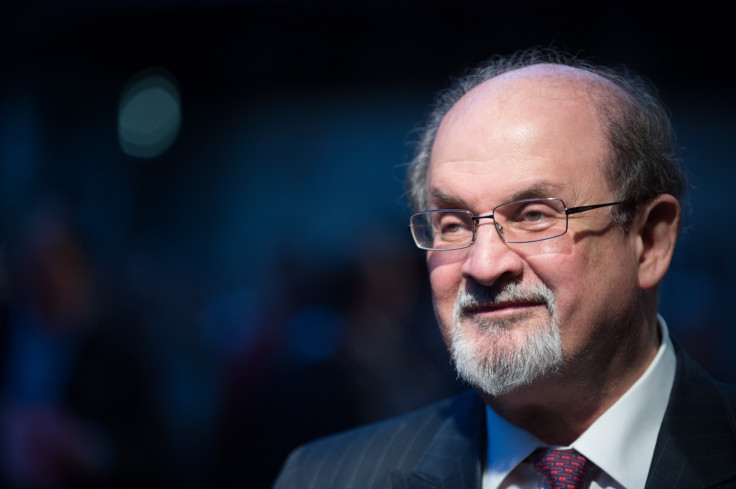Rushdie Modi UK Protests Controversy: 200 Writers Demand David Cameron Address Indian Freedom Of Speech

Upon the arrival of Indian Prime Minister Narendra Modi in the United Kingdom Thursday, more than 200 writers, including celebrated British-Indian novelist Salman Rushdie, signed a letter calling on U.K. Prime Minister David Cameron to address free speech concerns in India. Modi was in the U.K. for a three-day visit to discuss increased trade and economic cooperation between the two countries, and the writers urged Cameron to take the opportunity to discuss India's "rising climate of fear."
U.K. novelists Ian McEwan and Val McDermid were also among the writers who signed the petition, addressing "growing intolerance and violence toward critical voices" in India. The letter asked Cameron to "demonstrate tolerance and protect free speech" by addressing the "deteriorating political environment in which those expressing dissent have been attacked by government ministers," the BBC reported.
Issues of free speech in India, particularly surrounding writers who criticize religion, have caused controversy in the country for many years, and the writers of Thursday's letter alleged the government has done little to protect Indian citizens' right to free expression. Malleshappa Madivalappa Kalburgi, Govind Pansare and Narendra Dabholkar were killed because of their controversial writings in the past two years alone.
Kalburgi was shot and killed in August for his nonfiction works criticizing idol worship in India. Kalburgi sought to expose gurus, sorcerers and other types of healers as charlatans in his several decades as a scholar, angering many orthodox religious groups who believe in such practices. Two masked men entered Kalburgi's home Aug. 30 and opened fire on the 77 year-old writer who was declared dead at a nearby hospital.
Over 200 writers sign petition urging David Cameron to discuss freedom of speech with Indian PM https://t.co/Pnz2Uowv6Y
— The Independent (@Independent) November 12, 2015Several of the signers of the letter to Cameron, including Rushdie most notably, are no strangers to free speech controversies. Rushdie’s 1988 novel, “The Satanic Verses,” caused outrage among Muslims for reimagining the Koran, the holy book of Islam, as if it had been written by Satan instead of God.
Iranian supreme leader Ayatollah Khomeini issued a fatwa on Rushdie in 1989 for his supposedly heretical book, calling on all Muslims worldwide to kill the novelist. Rushdie went into hiding for several years and has continued to be an outspoken defender of free speech, particularly in the face of religious extremism.
© Copyright IBTimes 2025. All rights reserved.






















